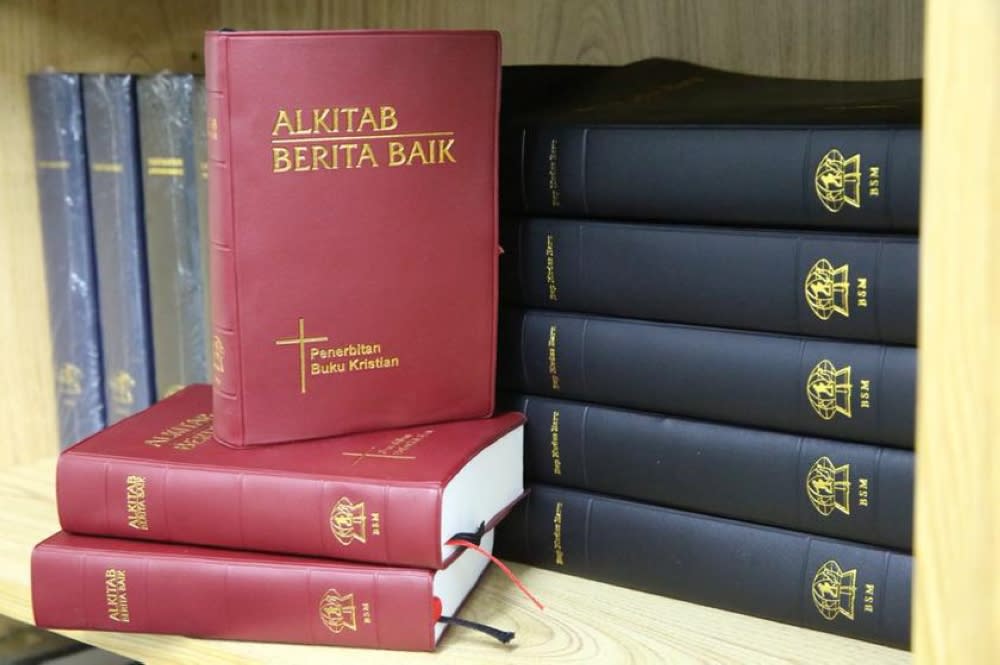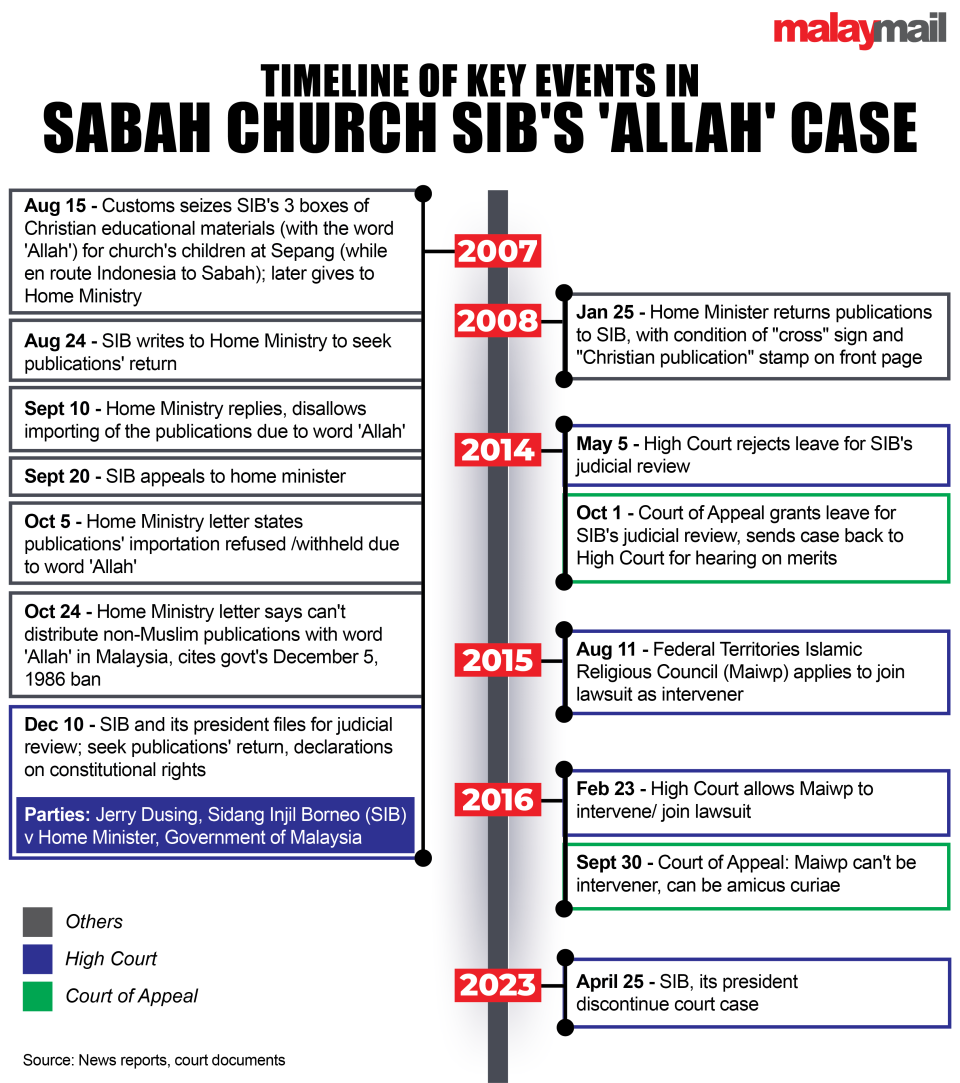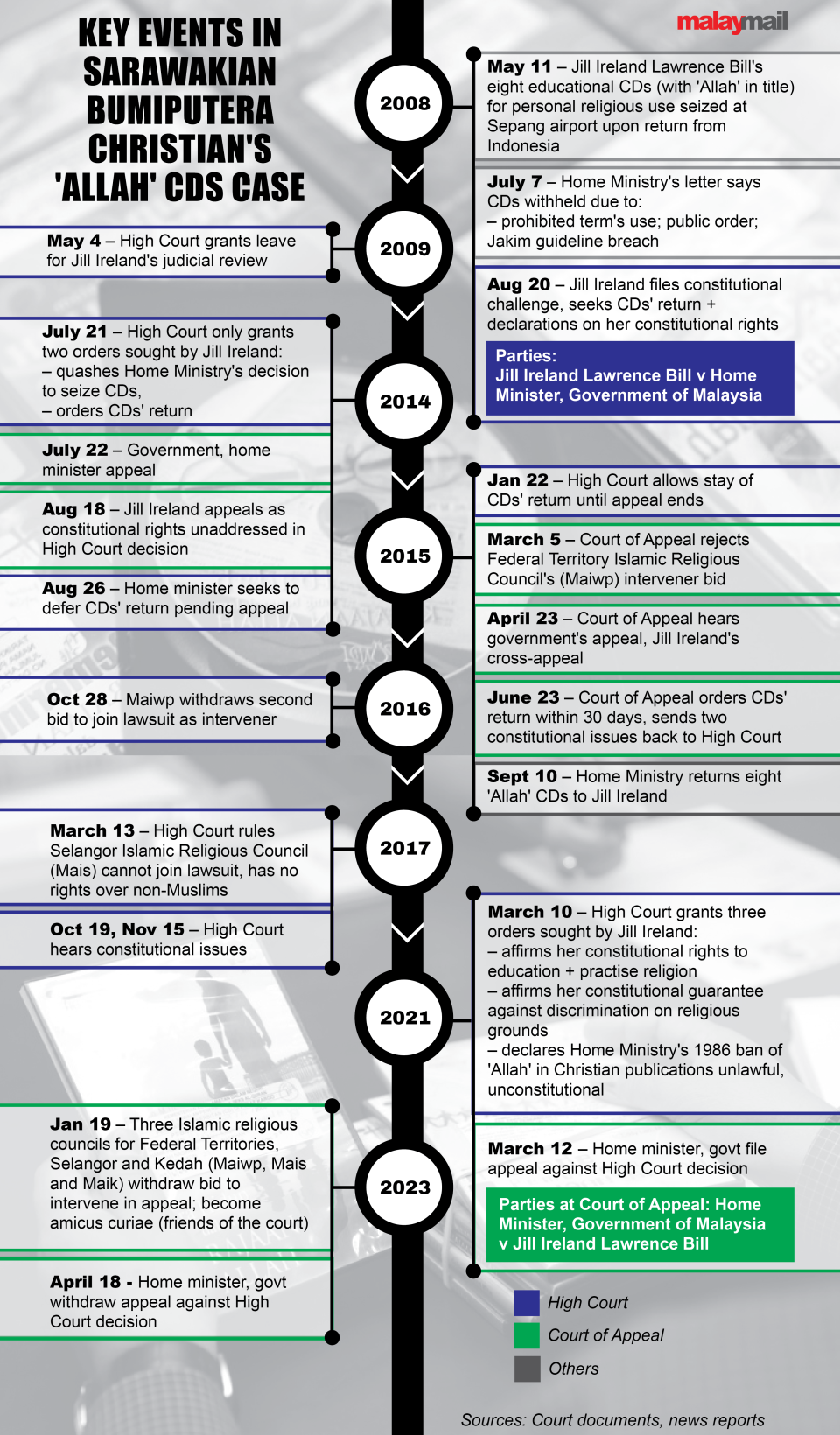Matching Putrajaya’s move, Sabah churches say dropped ‘Allah’ court case for sake of national harmony and unity

KUALA LUMPUR, May 29 — A Sabah church’s recent decision to discontinue its case which involved the government’s December 1986 ban on the use of the word “Allah” in Christian publications was done with national harmony and unity in mind, the Sabah Council of Churches (SCC) said today.
The SCC, an umbrella body representing churches in Sabah, said it welcomes the Malaysian government’s April 18 decision to withdraw its appeal against the High Court’s decision in the case involving a Sarawakian Bumiputera Christian, Jill Ireland Lawrence Bill and the same 1986 ban.
The SCC then referred to the Sabah church Sidang Injil Borneo’s (SIB) subsequent move to drop its court case on April 25 as a “reciprocal” act for the sake of harmony.
“Reciprocally and as an expression of our commitment to build a harmonious society, the Church has also withdrawn her case against the government in the case of Jerry W. A. Dusing@Jerry W. Patel & 1 lagi v Menteri Keselamatan Dalam Negeri & 1 Lagi (WA-25-108-11/2016).
“We believe these are positive steps toward strengthening the unity of our beloved multiracial, multireligious nation,” SCC president Most Reverent Datuk Melter Jiki Tais said in a statement.
The Sabah church SIB’s court case was initially scheduled for hearing today at the High Court, but today’s court records show that the entire lawsuit has been discontinued on April 25 by SIB through a notice of discontinuance.
With the discontinuance of the Sabah church’s case, there are now no longer any outstanding court cases in Malaysia involving the local Bahasa Malaysia-speaking Christian community’s use of the word “Allah” — which is part of the language — in the practice of their own religion.
Among other things, the SCC today said the local churches are committed to a harmonious life with all Malaysians.
“The Church has contributed to the nation-building of Malaysia since the formation of the Federation of Malaya and now Malaysia. It has always sought the good and welfare of the society even before Merdeka and we are committed to live in peace and harmony with Malaysians of other religions,” it said.
News of the Malaysian government’s dropping of its appeal in Jill Ireland’s case emerged on May 15, while the Sabah church’s dropping of its case was first reported on May 17.

The Bahasa Malaysia-speaking Sarawak native Jill Ireland’s court case was sparked by the government’s seizure of her eight compact discs — containing the word “Allah” in their titles and meant for her personal religious use.
The High Court had in March 2021 in Jill Ireland’s case quashed the government’s December 1986 ban on the use of the word “Allah” in local Christian publications as being unconstitutional and unlawful, and the Malaysian government dropped its appeal against this decision with the subsequent explanation that it was because the December 1986 directive was inapplicable and that a more comprehensive directive would be studied.
The Sabah church SIB too had sought to challenge the constitutionality of the December 1986 ban, but it has now dropped the entire case.
Read here for a quick summary by Malay Mail of the now-discontinued SIB court case, including how it was sparked by the government’s seizure of educational materials — containing the word “Allah” — meant for the Sabah church’s Christian children.
The word “Allah” is Arabic for God and had been adopted into the Malay language, and had been used for generations and hundreds of years by Malay-speaking Christians in the country — especially the natives or Bumiputera community of Sabah and Sarawak and Orang Asli in the peninsula — in the practice of their religion and professing of their faith.
Among other things, the SCC today also highlighted that the Jill Ireland case would have never had to go to court if the Federal Constitution’s provisions on freedom to practise one’s own religion had been upheld, and if the “assurances and undertakings given to the peoples of Sabah and Sarawak leading to the Malaysia Agreement 1963 (MA63) that their religious freedom would be honoured” were also upheld.



